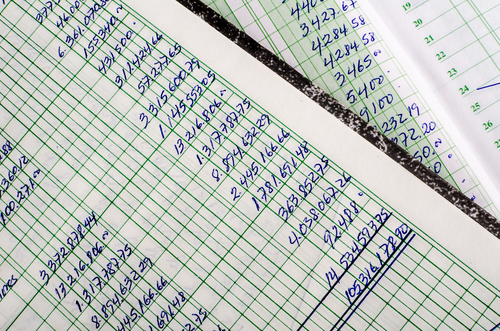Accounts – Types of and special Journals and subsidiary ledgers

Most business owners, especially small business, believe that the general ledger can account for all the individual transactions of business. This is not true. For clarity and ease of analyzing the accounting information, you need to record individual transactions in special journals and subsidiary ledgers when doing bookkeeping exercise. Also, large business organizations that make thousands of transactions daily need to record their transactions in special journals and subsidiary ledgers.
Types of subsidiary ledgers
A subsidiary ledger is a category of similar accounts where you can record related transactions. For example, all transactions for individual creditors are recorded in the accounts payable subsidiary ledger. Note that the balances in each subsidiary ledger should equal what is indicated in the general ledger regarding creditors. There are three types of subsidiary ledgers.
Fixed asset subsidiary ledger: is a record of every transaction regarding fixed assets (Also see FRS16: Property, Plant, and Equipment).
Accounts Receivable Subsidiary Ledger: this is where you record the transaction data of your clients.(See Accounts Receivable Best Practices)
Accounts Payable Subsidiary Ledger: contains transaction data of your creditors.
Types of special journals
Special journals are suitable for recording transactions that occur frequently. The computed balances from the special journals are transferred to the subsidiary ledgers and lastly to the general ledger. Recording these transactions directly into the general ledger is cumbersome and unnecessary.
The types of special journals vary from one business organization to another as the nature of the business determines the kind of special journals to be used. Here are the main types of special journals.
- Cash receipts journal: this is where you record all cash receipts including the collection of cash balances due from debtors, cash sales, and more.
- Sales journal: is a record of all sales. Your sales journal should contain all the information regarding your sales transactions only.
- Purchases Journal: whenever you make a purchase for your business (not personal), you should make entries in this journal.
- Cash payments Journal: any information regarding a payment you have made on behalf of your business is recorded here.
Most business owners in Singapore find it difficult to keep a consistent record of special journals, transferring the balances from these journals to the subsidiary ledger, and lastly from the subsidiary ledger to the general ledger (See other Common Accounting Mistakes and How to fix them). However, this process cannot be skipped unless you are preparing your business for failure. Therefore, it is important to engage an accounting service in Singapore to relieve you this challenging task and offer you a chance to concentrate on other aspects of your business growth.

Could ve swaned that was what really passed off , precisely did nt have the will to research it, thanks for working the mystery .